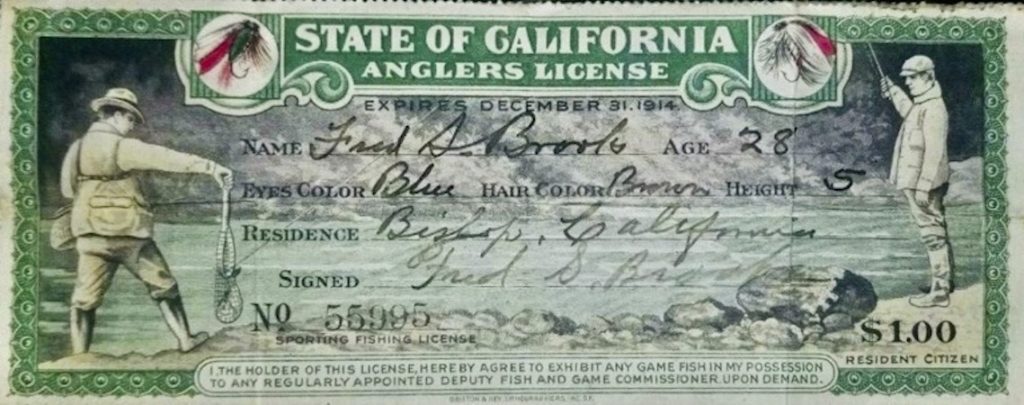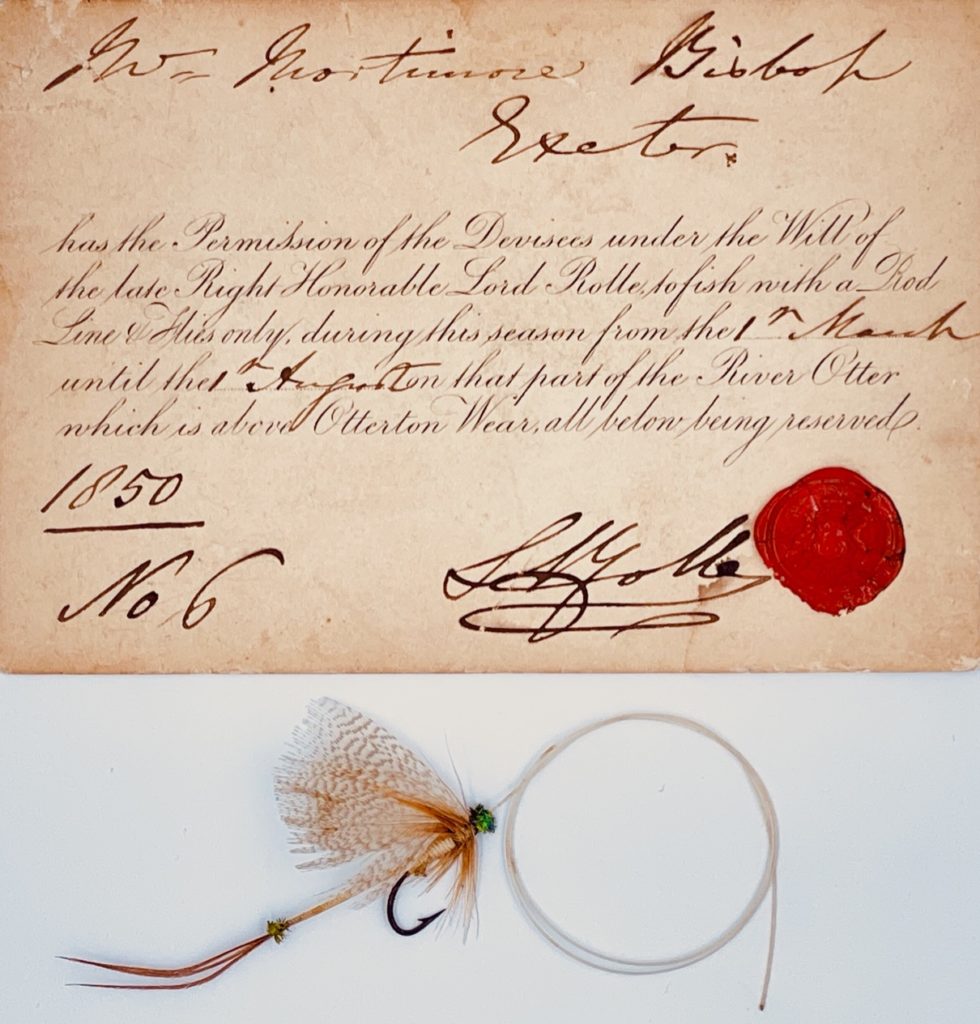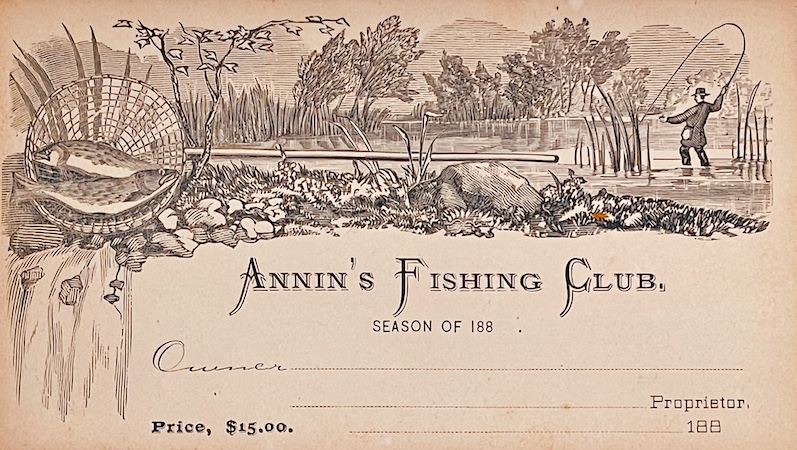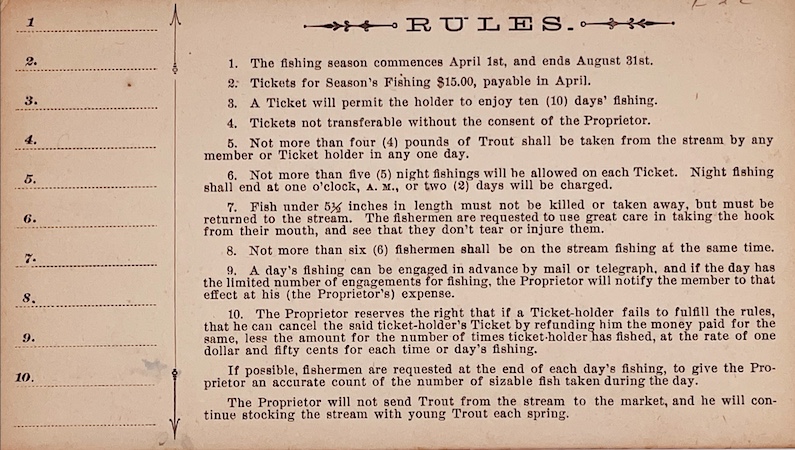
From the earliest days of fly fishing, there have often been regulations established to protect both the fish and the property rights of some of the owners of some of the finest stretches of fly fishing water in the world.
Licensing of the fisheries became the source of both revenues for owners and capital resources for fish and game departments.
Some of the early licenses and club passes have now become highly collectible as have the many trout and salmon stamps designed and printed by the fisheries authorities.

Here are a few examples from the ages, including an early license for fishing on the River Otter in the U.K. from 1850, which under the will of the late honorable Lord Rolle granted the licensee the right to fly fish a specific stretch of the river, complete with a wax seal.


A later example includes a private pass dating from the 1880s to fish the Annin’s Fishing Club in Caledonia, New York. J. Annin, the owner, was one of the first and most notable fish culturists in the United States, having established and managed a number of the earliest trout hatcheries.

Many of the states also produced some beautifully designed and printed fishing licenses, including this one issued by the State of California in 1914, which appeared on eBay earlier this year, with a price tag of $1,100.
Steve Woit is the author of “Fly Fishing Treasures: The World of Fly Fishers and Collecting”, a book featuring profiles of 30 experts and collectors and over 800 photographs of rare and collectible fly rods, reels, flies, books, and ephemera.
Get a jump start on your holiday gift-giving. Use special code MOLDY10 to get $10 off the cover price.






The Otter was and probably still is a lovely stream. I’ve fshed it several times. Some now call it “The Test of The West” (the west, in this case, being the English County of Devon), but then they might be trying to sell tickets or guided fishing days on the thing…. The Otter has European beavers living in it now, too. I just hope that they don’t “do a Tierra del Fuego” on the river and turn it into a mostly trout-less marsh.
Boote out.